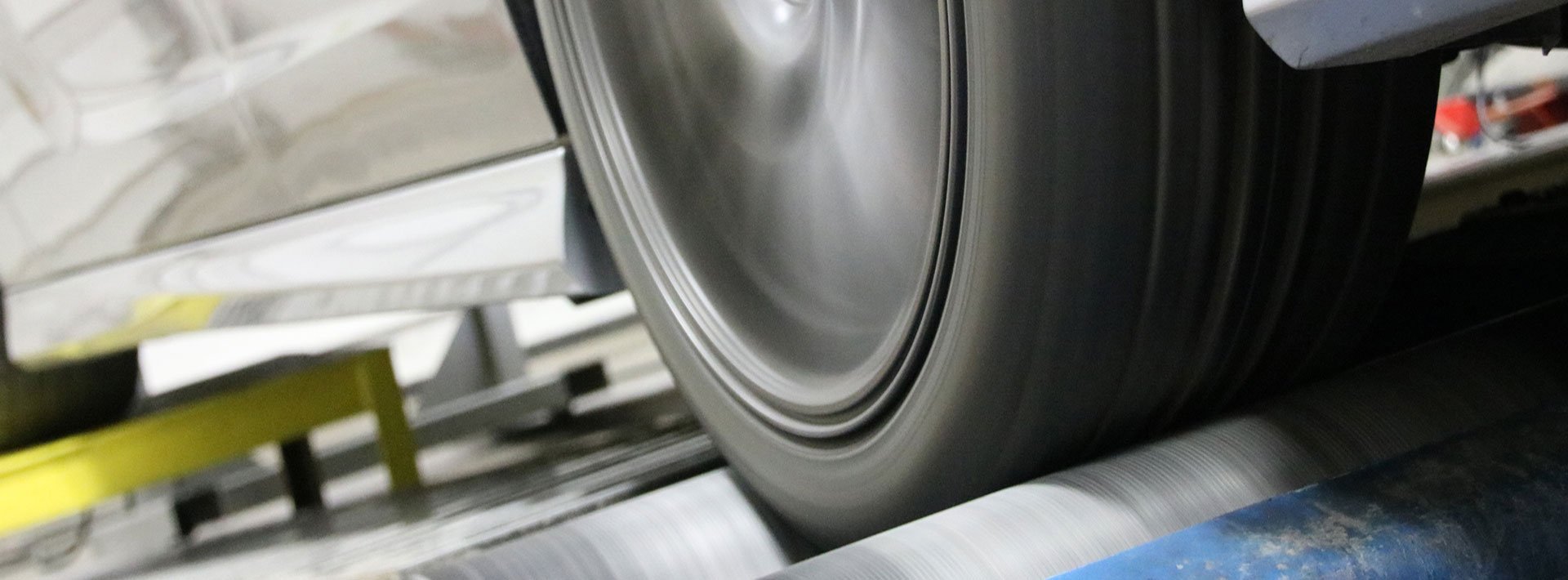ISO 3894 Road Vehicle Wheel Performance Durability Test
The ISO 3894 standard specifies the performance and durability testing requirements for road vehicle wheels. This test is critical in ensuring that automotive components meet stringent safety and reliability standards before they are incorporated into vehicles. For quality managers, compliance officers, R&D engineers, and procurement teams, this service provides a robust framework to validate wheel performance under real-world conditions.
The ISO 3894 test simulates the dynamic loading conditions experienced by wheels during vehicle operation. It evaluates factors such as load distribution, impact resistance, fatigue strength, and overall structural integrity over extended periods of use. This testing ensures that wheels can withstand harsh environmental conditions and varying road surfaces without compromising safety or performance.
The methodology involves placing a representative wheel on a specialized test rig designed to mimic the forces encountered during vehicle operation. The wheel is subjected to cyclic loading at specific intervals, with monitoring instruments recording stress levels, deformation rates, and other key parameters. This process continues until predetermined failure criteria are met or the specified duration has elapsed.
Understanding the importance of this test in automotive safety, many OEMs (Original Equipment Manufacturers) and Tier 1 suppliers rely on it to ensure their products meet regulatory requirements. Compliance with ISO 3894 not only enhances brand reputation but also protects manufacturers from potential legal issues related to product liability.
The test is particularly significant for R&D engineers as it provides valuable data that can be used to refine design processes and improve future iterations of the product. For procurement teams, this service ensures that they receive wheels from suppliers who adhere to the highest quality standards, thereby reducing the risk of supply chain disruptions due to substandard components.
The durability aspect of the test is crucial given the high-frequency usage of vehicle wheels in modern transportation systems. By simulating real-world conditions, ISO 3894 helps identify potential weaknesses early in the development process, allowing for timely corrections and improvements.
Scope and Methodology
| Test Parameters | Methodology | Equipment Used |
|---|---|---|
| Loading Conditions | Cyclic loading at specific intervals | Specialized test rig |
| Environmental Factors | Temperature, humidity, and vibration simulation | Climate chamber, shaker table |
| Material Evaluation | Impact resistance, fatigue strength assessment | Destructive testing machine |
| Performance Metrics | Load distribution measurement, deformation rate tracking | Instrumentation package including strain gauges, accelerometers |
The ISO 3894 test encompasses several critical components that ensure comprehensive evaluation of wheel performance. Loading conditions are simulated using a specialized rig designed to replicate the dynamic forces experienced during vehicle operation. Environmental factors such as temperature and humidity can also be controlled within the climate chamber, while vibration is managed through a shaker table setup.
Impact resistance and fatigue strength are assessed via destructive testing machines that provide detailed insights into material behavior under stress. Strain gauges and accelerometers form part of the instrumentation package used to measure load distribution and deformation rates accurately. These metrics are crucial for understanding how wheels perform under various loading conditions, which helps in optimizing design parameters.
Quality and Reliability Assurance
- Cyclic loading simulation
- Environmental factor control (temperature, humidity)
- Material property assessment (impact resistance, fatigue strength)
- Data collection using advanced instrumentation
- Failure analysis to identify weak points
- Compliance with ISO 3894 standards
- Continuous improvement through iterative testing cycles
The quality and reliability assurance process for the ISO 3894 road vehicle wheel performance durability test involves several key steps. Cyclic loading is simulated to replicate real-world conditions, while environmental factors like temperature and humidity are carefully controlled using climate chamber facilities. Material properties such as impact resistance and fatigue strength are rigorously assessed through destructive testing machines.
Data collection is carried out with advanced instrumentation packages that include strain gauges and accelerometers. This ensures precise measurement of load distribution and deformation rates, providing valuable data for comprehensive analysis. Failure analyses help in identifying any weak points within the wheel design, enabling manufacturers to make necessary adjustments.
Compliance with ISO 3894 standards is a priority throughout this process, ensuring that all tests meet internationally recognized benchmarks. Continuous improvement through iterative testing cycles further enhances the reliability and quality of wheels produced by adhering to these stringent protocols.
Environmental and Sustainability Contributions
The ISO 3894 road vehicle wheel performance durability test contributes significantly to environmental sustainability efforts. By ensuring that wheels meet rigorous standards for durability, the test helps reduce waste associated with premature failures due to suboptimal design or manufacturing processes.
The use of advanced materials and innovative manufacturing techniques, driven by this testing process, leads to more efficient resource utilization across the supply chain. Additionally, the ability to predict potential issues early on through comprehensive testing minimizes the need for costly recalls or repairs after products have been released into the market.
Manufacturers who adopt ISO 3894-compliant practices not only enhance their own sustainability credentials but also contribute positively towards broader environmental goals. By fostering innovation and efficiency in wheel production, this service supports global initiatives aimed at reducing carbon footprints associated with transportation sectors.





